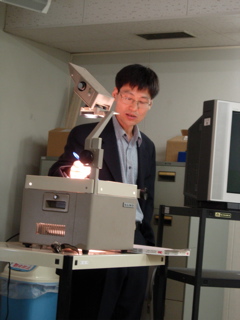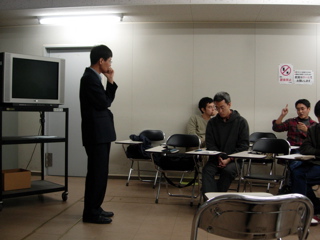2004年10月29日: Byeong-Uk Yi, Does Korean Have Count Nouns?
[日本語 | English]
- とき:
- 2004年10月29日(金)4:30pm
- ところ:
- 東京大学教養学部/総合文化研究科(駒場Iキャンパス)10号館1階101教室(いつもと違う部屋です)
- 講演者:
- Byeong-Uk Yi (University of Minnesota)
- タイトル:
- Does Korean Have Count Nouns?
- 概要:
-
Some people say no to the question and hold that common nouns of
Korean and other East Asian languages (e.g., Japanese or Chinese) must
be closer to mass nouns of, e.g., English (e.g., "water" or "milk").
They hold this view on the basis of an analysis of expressions for
number and quantity in Korean and those other East Asian languages.
In the present talk, I shall argue against their analysis of Korean
expressions for number and quantity. By doing so, I aim to show that
common nouns of Korean are amenable to a distinction comparable to, if
not the same as, the distinction between count nouns and mass nouns
of, e.g., English. This, I think, helps to clarify the nature of the
mass vs. count noun distinction in Indo-European languages as well as
'peculiarities' of some Asian languages, and to differentiate the talk
of number (e.g., "three humans") from the talk of quantity (e.g.,
"three gallons of milk") and counting from measuring.


10月26日には慶應義塾大学で同じ講演者の講演会があります.心の統合的研究センターのウェブページをご覧ください.
意味論研究会
21世紀COE<心とことば−進化認知科学的展開>共催
Last modified: 2004-10-30 01:31:55 JST



